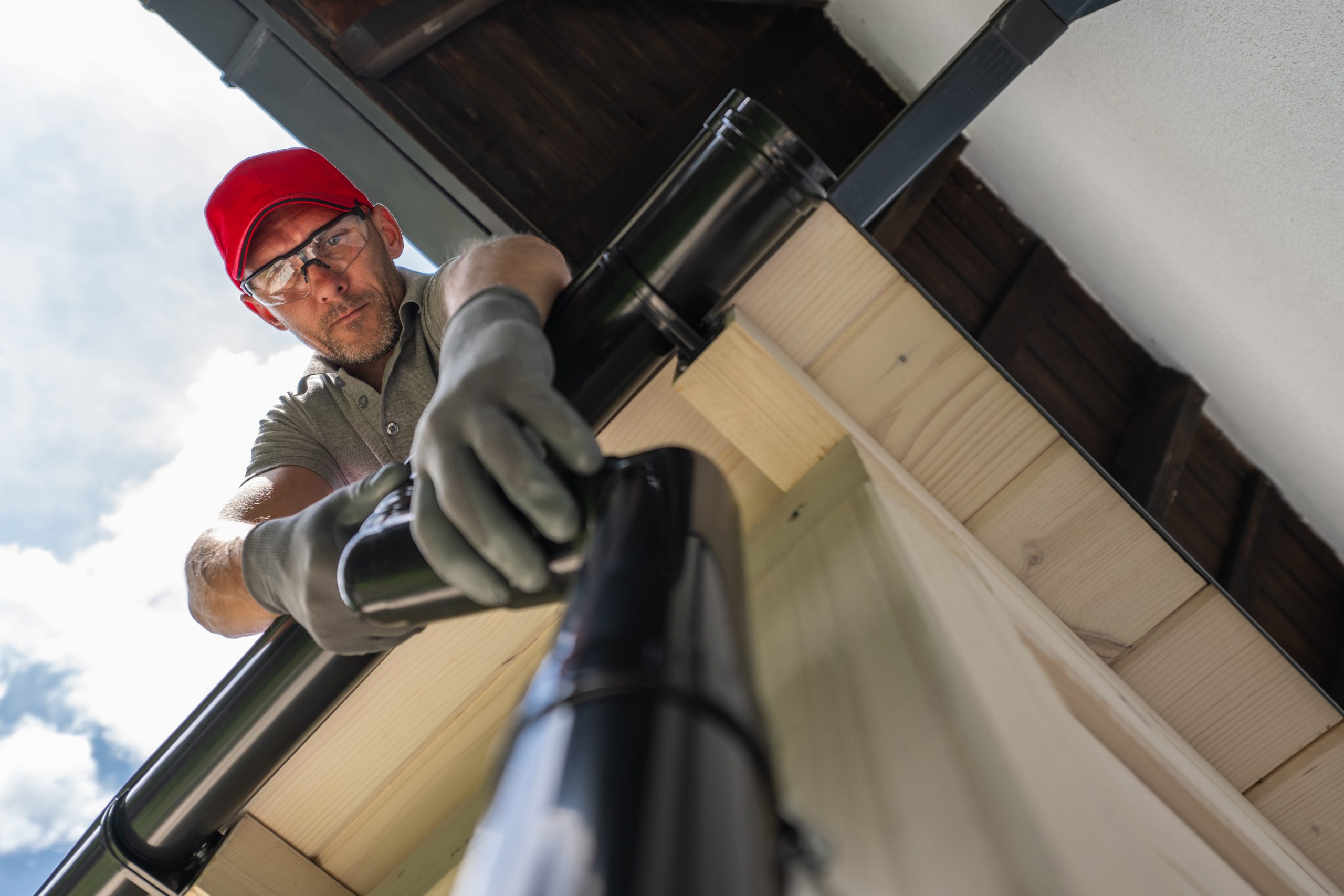Choosing the right gutter material is a critical decision when it comes to protecting your home from water damage. Each material offers unique benefits and potential drawbacks, depending on your home’s style, climate, and budget. In this article, we’ll explore the pros and cons of the most common gutter materials like aluminum, vinyl, steel, copper, and zinc. The goal is to help you make the best choice for your home.
Aluminum Gutters
Pros:
- Lightweight: Aluminum is easy to handle, making it a popular choice for both professional and DIY installations.
- Rust-Resistant: Unlike steel, aluminum doesn’t rust, making it ideal for wet or coastal environments.
- Affordable: Aluminum gutters are one of the most cost-effective options available.
- Versatile: Available in various colors, aluminum gutters can be customized to match your home’s exterior.
Cons:
- Dents Easily: Aluminum is more susceptible to dents and damage from heavy branches, hail, or debris.
- Not as Durable: While rust-resistant, aluminum can corrode over time if the coating wears off, and its overall durability is less than that of steel or copper.
Vinyl Gutters
Pros:
- Affordable: Vinyl gutters are among the cheapest options, making them a popular choice for budget-conscious homeowners.
- Rust- and Corrosion-Proof: Vinyl is entirely resistant to rust and corrosion, so it’s well-suited for wet climates.
- Easy to Install: Vinyl gutters are lightweight and can be installed without professional help, making them a good option for DIY projects.
Cons:
- Less Durable: Vinyl tends to become brittle over time, especially in colder climates, leading to cracks and breaks.
- Color Fades: Over time, vinyl can fade from exposure to sunlight, which may affect the overall appearance of your home.
- Limited Lifespan: Compared to other materials like aluminum or copper, vinyl has a shorter lifespan and may need to be replaced sooner.
Steel Gutters
Pros:
- Strong and Durable: Steel is incredibly strong and can withstand harsh weather conditions, making it ideal for homes in areas with heavy rainfall, snow, or wind.
- Long Lifespan: Galvanized or stainless steel gutters offer durability that can last for decades with proper maintenance.
- High Capacity: Steel gutters can handle large volumes of water, making them suitable for homes with steep roofs or in areas with frequent heavy rain.
Cons:
- Prone to Rust: Steel gutters, unless coated or galvanized, can rust over time, especially in coastal or humid environments.
- Heavier: Steel is significantly heavier than aluminum or vinyl, requiring sturdier support and making installation more challenging and costly.
- Higher Cost: Steel gutters are typically more expensive than aluminum and vinyl, both in terms of material and installation.
Copper Gutters
Pros:
- Aesthetic Appeal: Copper gutters offer a distinctive, high-end look. Over time, they develop a patina that adds character to your home.
- Durability: Copper is one of the most durable materials, lasting 50 years or more with minimal maintenance.
- Rust-Resistant: Copper is naturally resistant to rust and corrosion, making it ideal for all weather conditions.
Cons:
- High Cost: Copper is one of the most expensive gutter materials, both in terms of material costs and installation fees.
- Professional Installation Required: Due to its complexity, copper gutter installation should be done by professionals, which adds to the overall cost.
- Color Changes Over Time: While some homeowners love the patina that forms on copper gutters, others may not like the way the color changes from bright copper to a greenish hue over time.
Zinc Gutters
Pros:
- Extremely Durable: Like copper, zinc gutters are known for their longevity, often lasting 50 years or more with little to no maintenance.
- Corrosion-Resistant: Zinc is highly resistant to rust and corrosion, even in harsh climates, making it a long-lasting option.
- Low Maintenance: Once installed, zinc gutters require very little upkeep and can self-heal small scratches or imperfections.
Cons:
- High Cost: Zinc is expensive, similar to copper, and requires a significant upfront investment.
- Professional Installation Needed: Zinc gutters must be installed by a professional, as improper installation can lead to performance issues and reduce their lifespan.
- Limited Color Options: Zinc gutters are usually gray and develop a patina over time. Unlike aluminum, they don’t come in a wide range of colors.
Conclusion
Each gutter material offers unique advantages, whether it’s aluminum’s affordability, copper’s long-lasting beauty, or steel’s strength. The right choice depends on your budget, climate, and personal preferences. If you’re looking for a cost-effective solution, aluminum or vinyl might be the best option. For those seeking longevity and aesthetic appeal, copper or zinc gutters are excellent choices, though they come with a higher price tag. Ultimately, choosing the right gutter material will help protect your home from water damage while enhancing its curb appeal.

